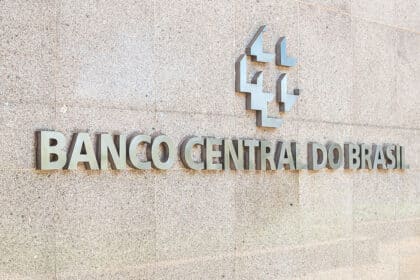When it comes to investing, people are typically categorized based on their risk tolerance: aggressive investors seek higher returns through volatile assets, while conservative investors prioritize stability and wealth preservation. However, new data reveals an intriguing shift in crypto investment trends. A recent study by Bank of America Private Bank found that young, wealthy investors who identify as “conservative” are holding more cryptocurrency than their “aggressive” counterparts, challenging traditional definitions of risk and investment.
Changing Landscape of Crypto Investment
Traditionally, aggressive investors lean towards assets like stocks, while conservative investors opt for safer, more predictable options such as bonds. Cryptocurrency, known for its volatility and speculative nature, would logically be a choice for aggressive investors. However, the study shows that young investors aged 21 to 43 with a minimum of $3 million in investable assets hold, on average, 17% of their portfolios in crypto if they identify as conservative, compared to 14% for those who are more aggressive.
These unexpected crypto investment trends reflect not just a shift in the market but also a redefinition of how investors view risk and opportunity in today’s financial landscape. Stephane Ouellette, founder and CEO of digital asset firm FRNT Financial, suggests that the current state of the crypto market plays a significant role in these trends. In a relatively stable market, “true believers” in Bitcoin (BTC) and other cryptocurrencies are holding on, while aggressive investors tend to re-enter the market when prices surge.
A Different Kind of Risk Perception
Why would conservative investors hold a larger share of their wealth in something as unpredictable as crypto? It all comes down to perspective. While traditional assets like stocks and bonds are backed by fundamentals like corporate earnings and cash flow, cryptocurrencies are primarily driven by speculation and investor sentiment. For some, this speculative nature and the potential for massive returns outweigh the risks.
Brad Klontz, a certified financial planner and financial psychology professor, points out that many crypto investors have a different attitude towards risk. “It’s more conservative to own crypto? It goes against all logic,” he notes. But for many young, wealthy investors, crypto offers a way to diversify away from traditional financial systems that they may not fully trust.
Crypto as a Hedge Against Economic Uncertainty
Cryptocurrencies like Bitcoin have often been seen as a hedge against economic instability. In periods of economic uncertainty, digital currencies provide an alternative store of value outside of conventional markets. The rise of crypto as a decentralized asset appeals to investors seeking to protect their wealth from systemic risks, currency devaluation, or market collapses.
Mike Pelzar, head of investments at Bank of America Private Bank, points out that for some young, affluent investors, crypto investments are perceived as safer than traditional assets. In the event of a significant economic downturn or collapse of the U.S. dollar, crypto may offer a safeguard as an alternative form of currency. For these investors, the perceived stability of crypto as an independent asset class provides peace of mind, even if it appears contradictory to conventional investment logic.
Crypto Investment Trends Reflect a New Perspective
It’s important to note that the current market environment plays a large role in these crypto investment trends. A few years ago, during crypto’s rapid rise, aggressive investors flocked to the market in search of quick gains. As prices fell in 2022, many exited their positions. However, those who view crypto as a long-term store of value and a hedge against systemic risks remained.
As markets stabilize and more institutional support for digital currencies emerges, the belief in crypto as a stable asset class is solidifying among certain investor groups. The attitudes of young, wealthy investors reflect a growing sentiment that diversifying portfolios with crypto is not necessarily a speculative gamble but rather a strategy to hedge against broader economic uncertainties.
The Implications for Wealth Building and Diversification
For young investors building wealth, having a small allocation to crypto may be seen as a high-risk, high-reward strategy that could lead to significant portfolio growth. The allure of potentially drastic returns justifies the volatility. For those who already have substantial wealth, however, the potential benefits of holding crypto are different. Since it would take a catastrophic event to significantly impact their wealth, crypto serves as an asset that might perform well when traditional investments do not, providing a safety net in times of economic crisis.
Ouellette of FRNT Financial believes that as the market evolves and if crypto prices take off again, aggressive investors may re-enter the market, driving further adoption. Until then, the cautious, long-term investors who see crypto as an alternative asset class will continue to shape the current crypto investment trends.
Featured Image: Freepik © ojosujono96




